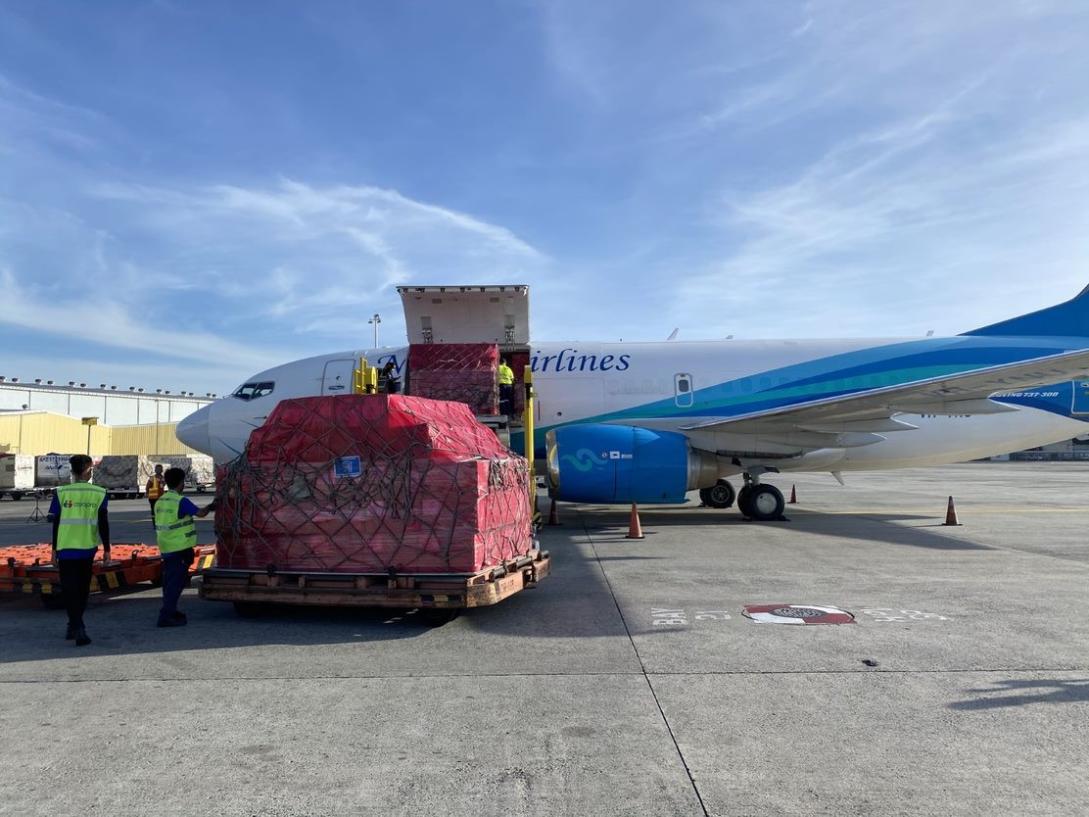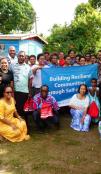Health Support in response to COVID-19 in the Pacific

Image: Medical supplies being loaded for Samoa.
Photo Credit: WHO, Manila.
A WHO-led Pacific Joint Incident Management Team (JIMT) for COVID-19 was established in January 2020 and brought other UN entities, donors and development partner organisations together to coordinate support health sector preparedness and response activities throughout the Pacific. The WHO-led Pacific Action Plan for Novel Coronavirus (COVID-19) Preparedness and Response (‘Phase I’ plan) ran from January to June 2020 with activities tailored to the specific challenges and needs of each health system supported across the Pacific. The strategic objectives during the Phase 1 response were to build capacity and capability across countries/territories to effectively manage COVID-19 cases to reduce preventable morbidity and mortality, contain and/or prevent localised national outbreaks, effectively mitigate/minimise the impact of COVID-19 pandemic on health, social and economic systems and prepare for early recovery. The work of all partners involved placed emphasis on strengthening local clinical care and public health system capacities and capabilities, supporting the production of national COVID-19 response plans, and aiding the implementation of priority preparedness tasks identified by national governments.
Beyond June 2020, a JIMT Phase 2 plan is focusing on responding to the continued vulnerability of Pacific populations and health systems to COVID-19 and seeks to address the needs likely to emerge in the Pacific because of excessive pressure on health systems, limited capacity and capability to diagnose, treat and manage large number of COVID-19 cases and their contacts within healthcare facilities, and the risk to the continuous delivery of essential services. Through this project, the EU is supporting the Phase II of the Pacific COVID-19 Health Sector Support Plan implemented by the Joint Incident Management Team (JIMT) under the leadership of WHO, also supported by Australia and New Zealand.
The five intended outcomes of the programme are:
- Outcome 1. Increased readiness of countries for effective COVID19 response operations with a special attention to those living in vulnerable situations;
- Outcome 2. Strengthened ability to test, detect and monitor for COVID-19 presence in partner countries;
- Outcome 3. Reduced risk of spread and excess morbidity and mortality from COVID-19 and other health issues;
- Outcome 4. Improved collaboration between environment, animal and public health sectors on specific activities to prevent, detect and respond to one or more agreed priority; and
- Outcome 5. Efficient Logistics and Delivery Mechanism for COVID-19 response put in place.
Pacific Island countries and territories benefiting from the programme include, Fiji, Cook Islands, Kiribati, Republic of Marshall Islands, Federated States of Micronesia, Nauru, Niue, Palau, Papua New Guinea, Samoa, Solomon Islands, Tonga, Tuvalu, Vanuatu.

